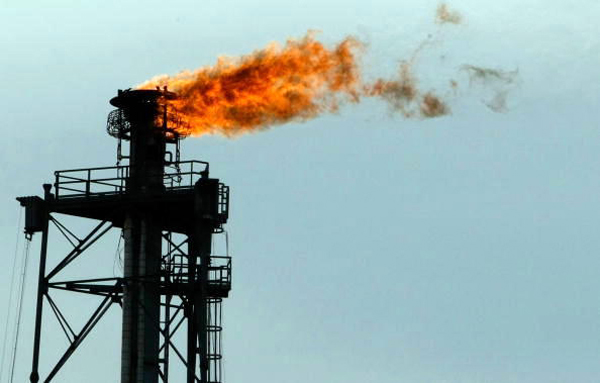- La Feria Community Holds Succesful Business Mixer Event
- Little Nashville to Take Place in Downtown Mercedes
- Lions Basketball Captures District Gold
- La Feria ISD Students Compete in Regional Chess Tournament
- Lions End First Half of 32-4A on a High Note
- La Feria ISD Held Another Successful Parent Conference
- Strong Appearance for Lions at Hidalgo Power Meet
- LFECHS Students Get to Meet Local Actress
- Students Participate in Marine Biology Camp
- Two LFECHS Students Qualify for All-State Band
Report: Texas Rarely Fines Oil, Chemical Companies for Air Pollution
- Updated: July 21, 2017

A new study finds only three out of 100 instances of illegal air pollution in Texas result in the offender being fined by the state. Photo: MarkWilson/GettyImages
by Mark Richardson
AUSTIN, Texas — While it may not pay to pollute in Texas, a new report finds it certainly doesn’t cost very much.
A joint study by Environment Texas and the Environmental Integrity Project said that between 2011 and 2016, Texas regulators imposed penalties on fewer than 3 percent of the illegal air pollution releases reported by chemical plants and oil refineries.
Tom Pelton, director of communications with the Environmental Integrity Project, said when state regulators don’t assess fines for illegal emissions, nothing deters companies from continuing to pollute.
“The problem with this is that without a penalty, polluting industries like oil refineries and chemical plants don’t have a financial incentive to upgrade their plants and reduce these pollution problems,” Pelton said. “And that creates a lot of air pollution that’s a real public health threat.”
He said regulations in Texas give polluters a loophole, allowing them to avoid a fine if they self-report that the release happened during maintenance or in an equipment failure. He said the state assessed penalties in fewer than 600 of the 25,000 self-reported events during the six-year period in the study.
Pelton said no matter how the pollution occurs, it still poses a public health threat and needs to be dealt with as such.
“It is a political problem. Texas state government has decided to go easy on industry and not make it follow the law,” he argued. “That means that average folks pay, with more asthma attacks for their children, more premature deaths for old people, and worse public health all around.”
Pelton said the report found the relationship between the industry and the Texas Commission on Environmental Quality is at best, unethical – and could potentially be illegal.
“Even if it’s an accidental release, it’s still is a violation of the Clean Air Act and therefore, should be punished,” Pelton said. “The courts have found that these are all violations. The State of Texas, however, still isn’t yet actually penalizing industries for these pollution events.”
He said in recent years, the courts have begun fining Texas industries for toxic emissions. Earlier in 2017, a federal judge fined ExxonMobil $20 million for pollution at its Baytown plant.
Pelton said he expects more Texas polluters to be taken to court.


